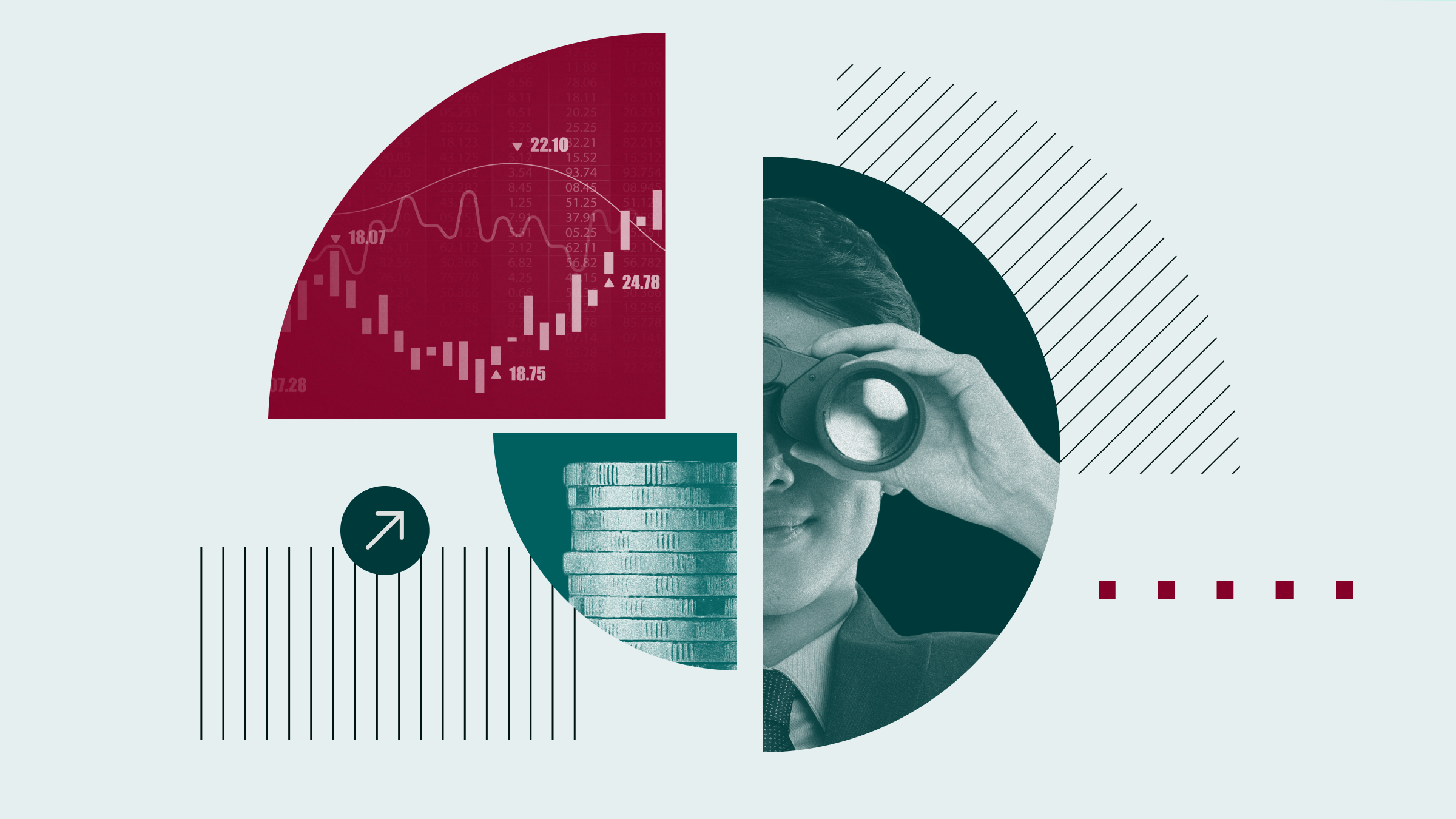Christine Benz: Hi, I'm Christine Benz for Morningstar.com. Home ownership is on many people's financial to-do lists, but it may not offer a compelling risk and return profile. Joining me to discuss some research on this topic is David Blanchett. He is head of retirement research for Morningstar Investment Management.
David, thank you so much for being here.
David Blanchett: Thanks for having me.
Benz: David, this is really interesting research, a paper that you are about to put out. But let's start by talking about the total value of real estate globally and in the U.S. I think people might be surprised to hear just how large these numbers are.
Blanchett: That's right. So, real estate is the most valuable asset in the world. It's worth about $217 trillion, and in perspective, the total value of all stocks out there is only $60 trillion, and bonds of about $122 trillion. So, the value of all this real estate really is the largest asset out there.
Benz: OK. And certainly, on many individual households' balance sheets that property, that home that the family might own, that's by far their largest asset as well.
Blanchett: Right. Housing is the largest expense for the average American, and it's the largest tangible asset. So, it really does matter in terms of thinking about what is the right way to invest your portfolio and just think about your wealth holistically.
Benz: So, for many families starting out, many couples or individuals, getting that house, buying that home, whether a condo or a single-family home, that's a big deal. It's a big financial goal. You set out to look at, well, relative to other things you might do with your money, is that home ownership a good idea. So, let's talk about your methodology for approaching this question, and as you told me before we got started here, you made the important point that it's a weird asset in that it's an asset that we consume in a way because we live there but it's also an investment asset.
Blanchett: That's right. So, when you think about your portfolio, you don't usually live in your portfolio, right? You own a basket of stocks. Well, if you buy a home, it's two types of goods--an investment good because you can possibly realize a benefit from appreciation, but also it's a consumption good because it gives you a place to live for as long as you own the home for. And so, an important question is, does it makes sense financially? And I totally understand that for a lot of folks home ownership is more than just about the numbers. It's a very personal decision. It's very emotional. It does different things. But like all the researchers ask the question, how do you think about the home as an asset on a balance sheet? And what I find is that it can be one path to create wealth via kind of for savings but for a lot of folks maybe you look to rent first, and if you do buy, understand the risks there.
Benz: So, when you step back and you look at the risk/return profile of that home as an asset, let's talk about what you found when you sort of looked at the return on investment over time.
Blanchett: Sure. So, if you look at the return of homes both domestically and internationally, they increase by about 1% a year over inflation. So if inflation has been, let's say, 3%, homes will go up by about 4% a year. Now, there are some problems though with those numbers. I mean, one big problem with the metrics we use, the House Price Index, is that they are tied to resale value of homes. So, someone sells a home in 2011, it resells in 2016, what is the change in value? Well, a problem there is capital improvement. So, if I were buy a home and try to flip it, put all this money into it, you don't see those expenses in terms of the actual resale value. There's also things like insurance, ongoing maintenance, real estate taxes that really kind of drive that down. So, I think that when you factor in all the costs of owning a home, the realized return is often less than inflation or possibly even negative.
Benz: Another thing you looked at is just the risk of home ownership. This is a big piece of sort of assessing the merit of home ownership as an investment. And you find that there is a ton of what you call idiosyncratic risks embedded in the house. Let's talk about that issue. Why are homes relatively risky from that standpoint?
Blanchett: So, a home is a very different asset than other things you may own. So, if you own a portfolio of stocks, you could own literally thousands of individual securities. You got a very diversified portfolio. Well, if you own a home, you own one home in one place. So, when thinking about the risks of home ownership, people often talk about these kind of nationally diversified House Price Indexes like Case-Shiller. Well, again, those are indexes that track oftentimes thousands of homes that are all across the U.S. Well, again, you own one home in one place, and so the risk of an individual home in one area has annual standard deviation of about 12% and if you put that into kind of relative terms, a portfolio that's half stocks and half bonds, has that same level of risk. So, a home by itself is very risky. What compounds the risk is leverage. So, people often buy a home with a mortgage. If you put 20% down on a home, then you have effectively a 5 times leveraged asset with your equity. What that creates is an asset that's about as risky as a 3 times leveraged equity index. So, for a lot of younger households the home is hands down the riskiest asset.
Benz: So, you acknowledge that it's a really personal decision. A lot of personal factors embedded in the decision about whether to rent or own. But you say that folks who happen to live in a city or a community where it's relatively undiversified economically, that's a particularly risky bet to make. Let's talk about that.
Blanchett: It is. So, I think that again we all want to live in a home that it's a nice place to live. But let's say that you have a new job and you move to a town, and this is a one-company town that has one main employer, or it's a town where every employer is kind of tracked to one single industry. Well, the problem there is if that one employer or the industry happens to suffer, it could materially affect your home price, your home appreciation. So, when kind of asking yourself how risky is this home, a really important question is, well, how risky is that area that I live in, in terms of number of employers and industries that they actually work in.
Benz: So, geography also plays a role. You teased that out in the research. Let's talk about that issue and also whether the findings of certain regions being more lucrative to be a homeowner whether that can be carried forward, whether you can expect that home ownership in, say, California or New York while it's been a great investment in the past, will that necessarily be the case going forward?
Blanchett: It's obviously hard to predict the future. And if you look at returns in homes over the last 20 or so years, you see that certain areas like California have just done spectacular. Other areas like Phoenix or Detroit or Tampa, etc., haven't done quite as well. So, there are these huge differences in performance of different regions. But what's interesting is, there's actually some relationship across regions and what does well. I think that certain things like again economic diversity, actually temperature, have been historically important characteristics of those that have done better than others.
Benz: Last question relates specifically to retirement. We talked about how home ownership is a big asset on many household balance sheets, and that's especially true for retirees where that is sometimes their biggest asset they bring into retirement. What would you say for people who are getting close to or in retirement, how should they think about that home? Should they think about unloading it as soon as possible? Or what's your thought on that?
Blanchett: Well, you need a place to live, right? So, I think that people think about homes, the primary purpose is to provide you with a means of shelter. But beyond that an important question is, if I want to utilize that home, what's the best way of accessing that to fund retirement? I think one way to do that is the reverse mortgages. What that does, it kind of creates liquidity, because homes by themselves are very illiquid assets. And looking to utilize that home to fund retirement, to your earlier point, can definitely folks that need it to create retirement security.
Benz: Now, I know a lot of people's hackles automatically go up when you say anything about reverse mortgages because in the past it was kind of a sleazy pocket of the financial services industry. Has it gotten better for consumers? Is it a better playing field?
Blanchett: It's definitely getting better, and it could still get better yet. I think that obviously everyone has different unique facts and circumstances, but from my perspective the home is not the best asset to own to maximize wealth or fund retirement. So if you can utilize that asset and diversify it with reverse mortgages and income streams, that is worth looking into.
Benz: David, fascinating and important research. Thank you so much for being here.
Blanchett: Thanks for having me.
Benz: Thanks for watching. I'm Christine Benz for Morningstar.com.







.jpg)














